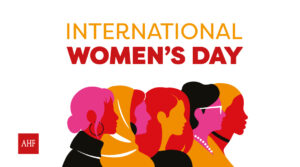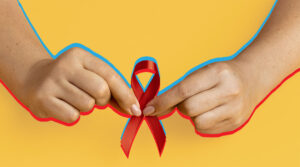When you live with HIV, it is possible that at some point you will be offered to participate in a research protocol. If you have never heard of something like this, here we tell you everything.
Diseases with special consequences, such as HIV, cancer or, more recently, COVID-19, are also conditions that consume large resources of all kinds, mainly human and economic.
For this reason, health institutions and pharmaceutical companies invest a lot of money in researching them, but although all research begins in a laboratory, there comes a point in the process where the hypothesis or theory that is being worked on must be corroborated (or discarded) in human beings.
What would be the use of participating?
Research protocols, also called clinical trials, are studies that are carried out to collect data that evaluate the efficacy of a given treatment, explains the Living Positively document. Guide for people with HIV, their families and friends, prepared by the government of Argentina, through its Ministry of Health.
These investigations are mainly done to test new drugs, combinations or doses, so being part of one of them can offer you a first benefit.
Most likely, your medical team will propose you to participate because they identify that your case has specific characteristics, for example, a multi-resistant virus, a health condition that rules you out for certain types of antiretroviral, or a co-infection with another important virus (for example, , hepatitis C).
It is not only that you, as a volunteer, contribute to scientific development for the whole society (which is quite true), but also that you have access to the possibility of receiving a novel treatment and that this treatment works and gives you a new benefit, which you would not otherwise get.
What is informed consent?
But the decision is not so easy. You should also keep in mind that research protocols usually need to compare the effect of the treatment under study with something else, whether it’s another existing treatment or a placebo, that is, an inactive substance.
By joining a clinical trial, you will also might not receive the treatment under investigation, for which you would not receive any benefit. However, the ethical guidelines for designing a protocol prohibit research from being carried out if the harm that can be caused to people is greater than the benefit that the research will obtain.
It is important for you to know that all participation in a research protocol must be voluntary, and to make the best decision it is essential that you sign an informed consent.
Informed consent is a document where the research team clearly and fully explains the potential benefits and risks of the trial. Unlike so many papers that pass through your hands in life, this is not a document that you can sign without reading, since you would be accepting to submit to conditions that you have not fully understood.
Also, keep in mind that the consent you sign may change. That is, whether during the trial there are findings, such as side effects that were not contemplated, a new consent must be written and signed again (if you decide to continue after that modification).
Ideally, you should be given enough time to read, analyze and comment on all the doubts you have about the conditions of the study explained in the informed consent. You should be able to talk to your medical team about anything you would not understand.
Do not accept pressure
As cordial as it may be, the relationship between users of health services and their doctors is usually a relationship of power. If your doctor invites you to the research protocol because he or she is doing it, remember that you have the last word.
It is not acceptable to be pressured into accepting, or for your health care to be affected if you choose not to participate in the clinical trial. If this happens, go to the authorities of the clinic or hospital where you were treated, so for you to continue to receive the care that is your right.
Remember that at AHF Latin America and the Caribbean we work to provide HIV services with the best quality for the largest number of people who need them. If you have an HIV diagnosis and you have not started your treatment or you want to resume it, come to our offices in your country and we will help you.






